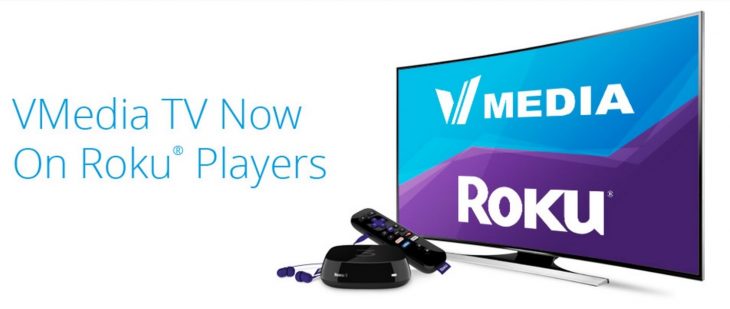
TORONTO – Bell Media told an Ontario Superior Court of Justice this week that VMedia is in breach of its agreement to distribute Bell Media content, in part because the small company is using the public internet instead of a private managed network to distribute content.
In September, VMedia launched an app on OTT streaming ecosystem Roku that will enable subscribers to stream live over-the-air television stations, like CTV and CTV2, to anyone with an Internet connection and a Roku device.
VMedia, which filed the affidavit with the court in October to avoid a lawsuit, maintains it is not using the public internet or any type of web-streaming. Following the inconclusive hearing, VMedia co-founder George Burger maintains he is "convinced that ours is a legitimate interpretation of the Copyright Act."
VMedia’s lawyer, Rocco Di Pucchio, argued the company was approved for a BDU license by the CRTC in 2015, and is entitled to retransmit signals using Internet Protocol television (IPTV) without authorization from the channel owners, given it has met all regulatory obligations, such as paying SOCAN fees.
The company, he contended, is not an “internet retransmitter” – a classification that would qualify it as a Digital Media Exemption Order (DMEO) under Section 31 of the Copyright Act, which would disqualify it from retransmitting copyrighted material owned by Bell Media and other news networks.
Bell’s lawyer, Steve Mason, responded that it is “an undisputable fact” that VMedia is transmitting via the open internet, and therefore operating outside the scope of its BDU license. The company, he argued, took advantage of CRTC’s retransmission regime in 2015 when applying for the license by committing to only retransmit signals over a privately managed network.
“How can they tell the court this today”, argued Mason, contending that VMedia promised the CRTC its services wouldn’t be delivered over the internet, and “yet they’re doing just this.”
Mason told the judge this decision is entirely under his jurisdiction, and does not need to be decided by the CRTC. It comes down to “fundamentally whether VMedia is a retransmitter or a new media retransmitter…it is a question of statutory interpretation.”
Mason set out to describe the complex legal and policy issues surrounding internet retransmission dating back to 2002 when Parliament’s intent in amending the Copyright Act was to address web-based television activities. The CRTC’s Digital Media Exemption Order came into effect in 1999.
However, Di Pucchio argued there’s a clear distinction about what was meant by internet retransmission in 2002 and 2003, compared to what it means today.
“We were still using dial-up in 2002… this was before IPTV existed,” he said, pointing the court to instead consider updated language in the CRTC’s 2015 policy statement emerging from its Let’s Talk TV public consultations.
Di Pucchio argued that the debate in 2002 was about companies such as Jump TV, whose websites were available to anyone with a computer and whose service is much different from VMedia’s. Bell Media, by contrast, maintains that Jump TV was making the same arguments that VMedia is making today about transmitting signals over the internet.
VMedia went on to argue that the CRTC licenses all kinds of services today that are using the internet, including IPTV services.
“This position that the CRTC does not license anybody that uses the internet is just plain false,” said Di Pucchio, arguing that Bell Media even recognizes that companies operating on the internet qualify for compulsory licenses. He referenced a Bell Media letter sent to the CRTC in 2014 in response to an application from a company called Leiacomm, which was proposing to use the internet to deliver linear programming. The letter indicated Leiacomm wasn’t prepared to subject itself to the regulatory framework of a license, and should have obtained a license from the CRTC referencing other entitities, like VMedia.
(For background, the CRTC ruled against Leiacomm’s complaint against Bell in 2014.)
It is “the complete opposite argument” argued Di Pucchio and “when it suits (Bell Media) to deny programming they take a position with the CRTC that ‘this entitity should be licensed’, and when they’re here before the court they take a position that VMedia cannot operate its license.”
VMedia believes debating private managed networks is getting into the weeds because “the CRTC has already moved away from that.” When VMedia obtained a license from the CRTC in 2015, Di Pucchio contends, the CRTC accepted that it was based on having transmission agents from a third party ISP platform.
Yet, Di Pucchio argued, Bell Media is “asking you to go behind and ask what would and would not be acceptable” in terms of whether VMedia has a license to be a retransmitter under the Copyright Act, and transmit channels like CTV and CTV2, or if the new app should be considered a new media retransmitter with no authority to transit these signals.
The presiding judge, Justice Fred Myers, reserved his decision after the all-day case, but the parties expect it to come very soon.



